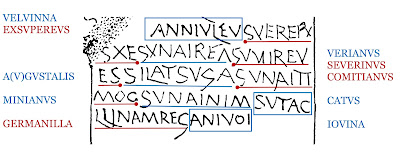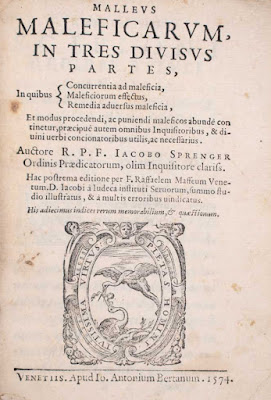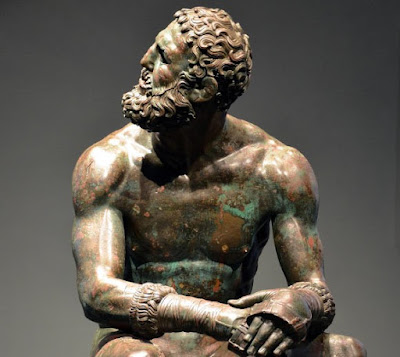The future passive uses the same endings as the present and
imperfect passive i.e. -r, -ris, -tur, -mur, -minī, -ntur
However, misreadings can occur with this verb form and so we’ll
break it into two groups according to conjugation type:
1st / 2nd conjugation: the future tense
of 1st and 2nd conjugation verbs is instantly
recognisable and has been discussed in many previous posts: -bō / -bi- / -bu-
1st
laudābō │ I shall praise
laudābis │ you (sg.) will praise
laudābit │ he / she will praise
laudābimus │ we will praise
laudābitis │ you (pl.) will praise
laudābunt │ we will praise
2nd
monēbō │ I shall warn
monēbis │ you (sg.) will warn
monēbit │ he / she will warn
monēbimus │ we will warn
monēbitis │ you (pl.) will warn
monēbunt │ they will warn
When these change into the passive, the same passive endings
are used but note the small change in the *second person singular with the use
of -eris
1st
laudābō │ I shall praise > laudābor │I shall
be praised
laudābis │ you (sg.) will praise > *laudāberis
│ you (sg.) will be praised
laudābit │ he / she will praise > laudābitur │ he / she will be
praised
laudābimus │ we will praise > laudābimur │ we will be praised
laudābitis │ you (pl.) will praise > laudābíminī
│ you (pl.) will be praised [stress change: lau-da-bI-mi-ni]
laudābunt │ we will praise > laudābúntur │ they will be
praised [stress change: lau-da-bUn-tur]
2nd
monēbō │ I shall warn > monēbor │ I shall be
warned
monēbis │ you (sg.) will warn > *monēberis
│ you (sg.) will be warned
monēbit │ he / she will warn > monēbitur │ he
/ she will be warned
monēbimus │ we will warn > monēbimur │ we
will be warned
monēbitis │ you (pl.) will warn > monēbíminī
│ you (pl.) will be warned [stress change: mo-ne-bI-mi-ni]
monēbunt │ they will warn > monēbúntur │
they will be warned [stress change: mo-ne-bUn-tur]
A few separate lines from a bitter Catullus who’s broken up
with his erstwhile, on and off, fly-by-night girlfriend; these are only three
lines but, if you read more about this relationship, Catullus’ impression of
it, and the reality, don’t appear to match
amāta nōbīs quantum amābitur nūlla. │ loved by us [=me]
as no girl will ever be loved
At tū dolēbis [future active], cum rogāberis [future
passive] nūlla. │ And you will be sad when you aren’t asked [= you will not
be asked at all] i.e. Catullus, in my view, deceives himself by suggesting
that she’ll never find somebody else (in fact, she appears to have found several)
Quis nunc tē adībit [future active]? Cui vidēberis [future
passive] bella? │ Who will come to you now? To whom will you seem beautiful?
(those she met at street corners and alleyways apparently)





































